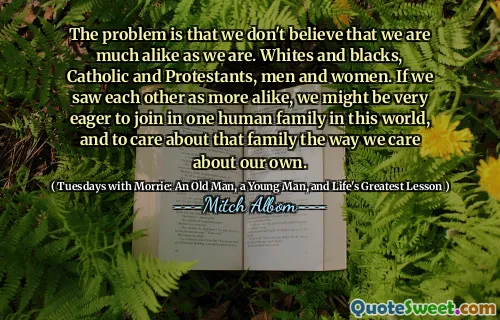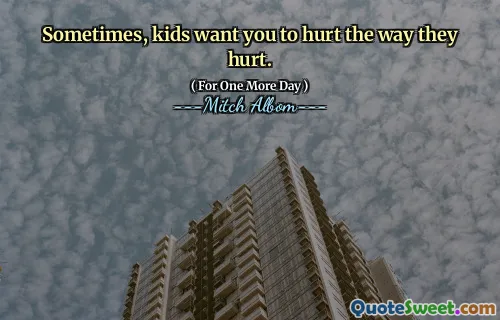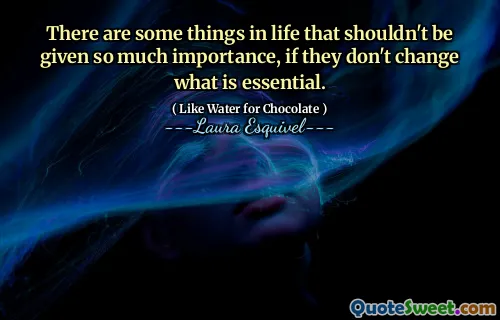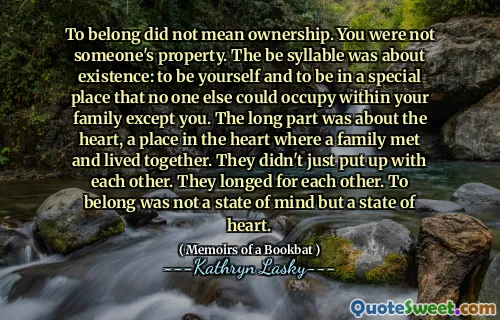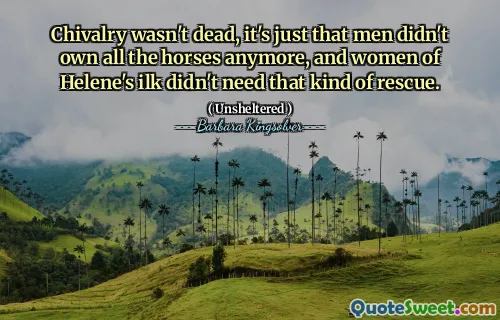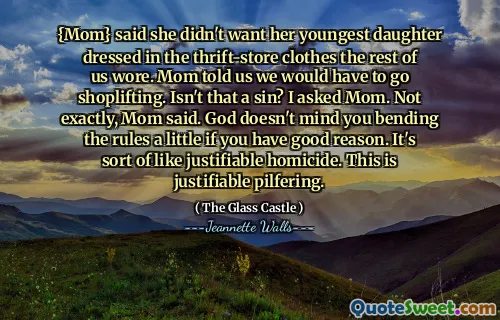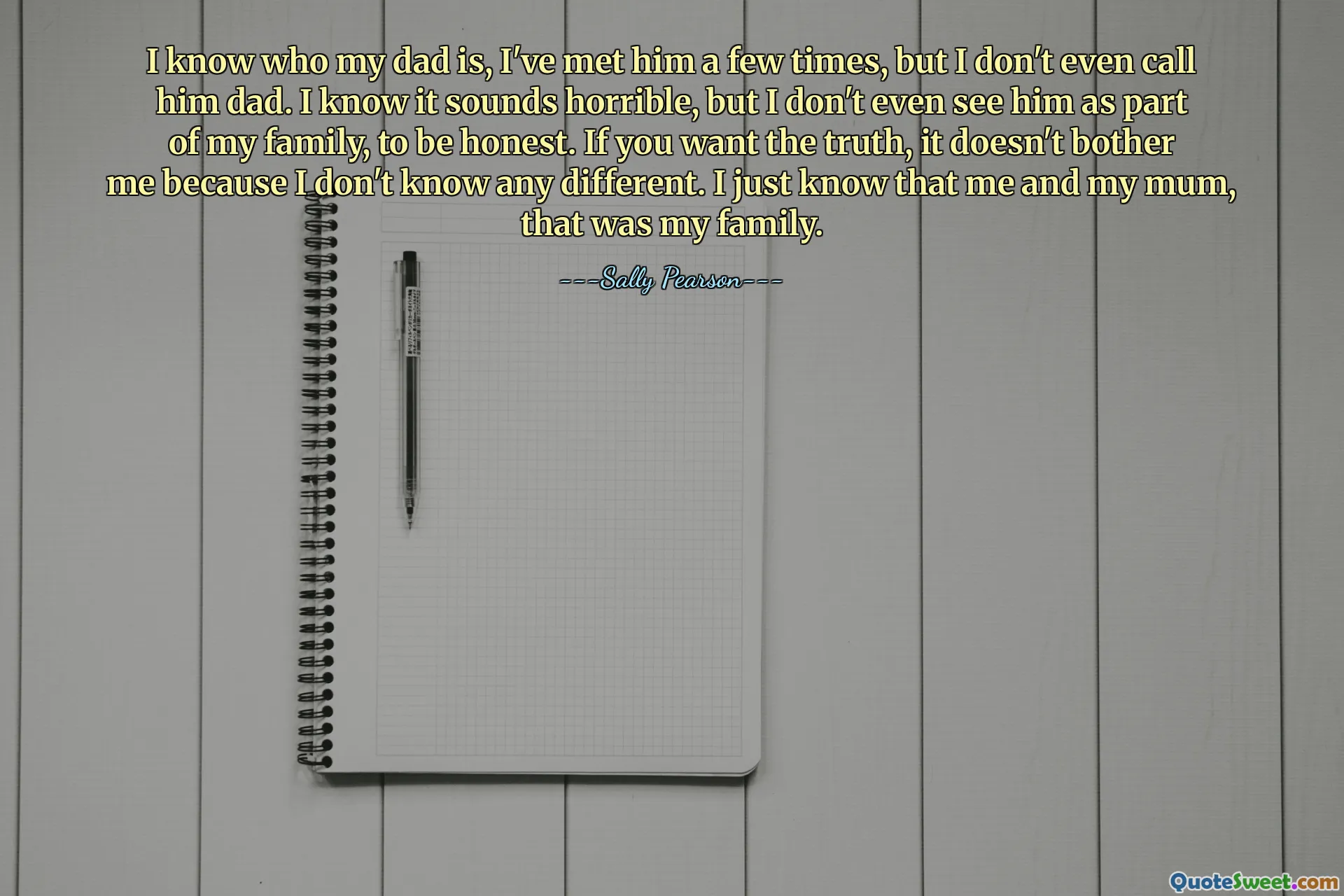
I know who my dad is, I've met him a few times, but I don't even call him dad. I know it sounds horrible, but I don't even see him as part of my family, to be honest. If you want the truth, it doesn't bother me because I don't know any different. I just know that me and my mum, that was my family.
This quote poignantly articulates feelings of estrangement and redefinition of familial bonds that many people experience in their lives. The speaker openly acknowledges a disconnection from their biological father yet does so without evident bitterness. Instead, there’s a nuanced acceptance of this reality, underscoring that family, in its richest sense, isn’t strictly defined by genetics or societal expectation but by the genuine relationships we nurture. The speaker's emphasis on their bond with their mother highlights the significance of chosen connections that provide true support and identity. It invites reflection on how family structures can be complex and nontraditional, reminding us that emotional closeness and shared experiences often outweigh simple blood ties.
The emotional resilience in this quote is notable—the speaker’s sense of belonging derives singularly from their relationship with their mother, framing family as a source of comfort and stability amid ambiguity. It challenges the conventional narrative that one's father must hold a central place in familial identity and instead celebrates the possibility of creating a meaningful family defined by trust, love, and shared history. Additionally, the quote touches on potential stigma surrounding non-traditional family dynamics; by candidly sharing these feelings, the speaker provides a voice to others who might feel isolated or judged. Overall, the quote is a testament to the evolving nature of family and the personal acceptance that can emerge from embracing one’s unique story.
---Sally Pearson---






